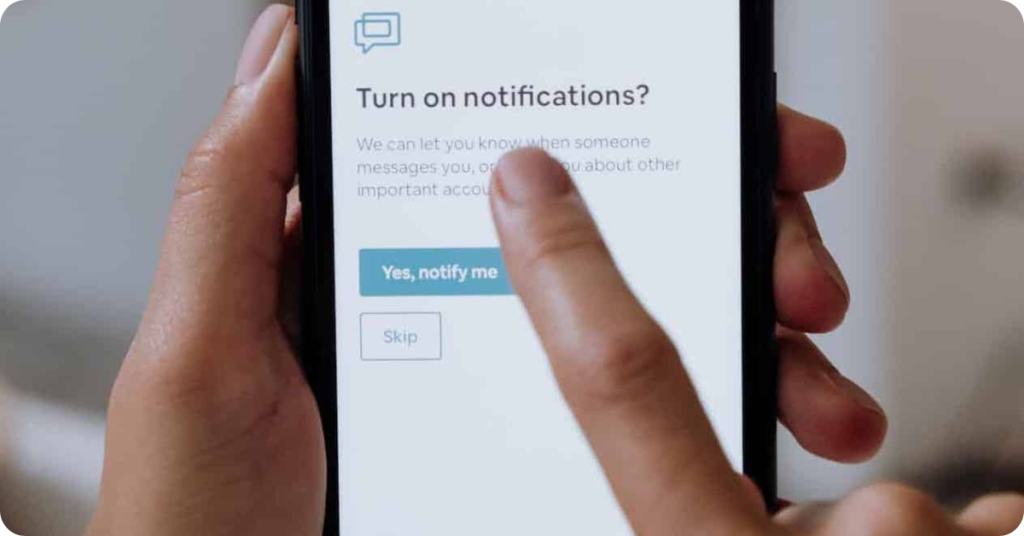Creating and respecting boundaries in 2023

A recent study in the UK shows that employees feel a lot of pressure on being responsive and available even on holidays and days off – “3 in 5 (53%) of those .. are available to work despite having time off.”
Does this just mean employees are devoted body and soul to their work? Or that they need to get better at creating and respecting boundaries in 2023?
The tools that make us available at all times
Being passionate about one’s work and being driven is to be applauded. We tend to believe though, that these are not the sole reasons employees decide to stay available on their days off.
It’s nothing new that we are in a world of constant notifications. And not only are we constantly notified, but both our private and professional worlds tend to collide. Even more, now that many of us work or have worked from home. We receive our work email on our phones, have access to our files through the cloud on our laptop in the bedroom, and check our work messages together with our family texts first thing in the morning.
Even with the best determination in the world, it is very difficult to stay ‘offline’ as that would mean cutting ourselves off completely.
The vicious circle
And once you receive the notification, the email, or the message, it takes the greatest willpower not to check it and act on it. We tell ourselves it will only take a minute, which might be true in terms of action but our minds will wind up in work mode for several hours after that email was sent.
On top of that, there is the very real fear of anticipating going back to work and being swamped with emails and tasks from day one. In order to avoid that, many people prefer to keep an eye on what is going on at the office while they are away.
And that is how, even if it is not expected of us from management, we will receive that extra pressure to stay alert, no matter what.
Boundaries 101
In their book ‘ Make Time. How to Focus on what matters every day ‘ authors Jake Knapp and John Zeratsky address the disturbance of endless notifications. They explain how these steal our time and attention away from our well-deserved time off.
There is a tendency to believe that being constantly available makes us better at our jobs. To a certain extent maybe, but it is quite impossible to sustain such behavior in the long run.
By allowing offline periods you are able to truly rest your mind. It will slowly disconnect from the work mode and allow for other thoughts and creativity to come in.
That usually means you will come back to work more refreshed and more productive.
Simple but essential tips:
- Turn off all work notifications. It might take a few minutes, but it will be beneficial.
- Have an ‘Out Of Office’ automated message. Be clear in your OOO message about how long you will be away and how much access you will have to your messages.
- Delegate. If anything urgent were to come up during your break, have a trusted coworker in a copy of your automated email to make sure not to come back to more stress.
Related:
Don’t you know that you’re toxic?
About the author

Morgane Oléron
Psychology Content Writer at Siffi
Morgane crafts compassionate, engaging content that makes mental health conversations more human and accessible. At Siffi, she combines storytelling with strategy to foster a culture of care and connection in the workplace.
Recent posts
-
The 5 key habits of highly successful companies in employee mental wellbeing17 Nov 2025
-
Supporting 'Survivor's Guilt' after layoffs: HR’s role in secure, purposeful recovery10 Nov 2025
-
Breaking the silence: Supporting men's mental health in your workplace03 Nov 2025
-
Mental health informed performance management: A guide for HR27 Oct 2025
-
Adaptation to a new country20 Oct 2025
Newsletter
Sign up for our newsletter and get monthly tips and tricks for better mental well-being from our certified therapists and coaches.
